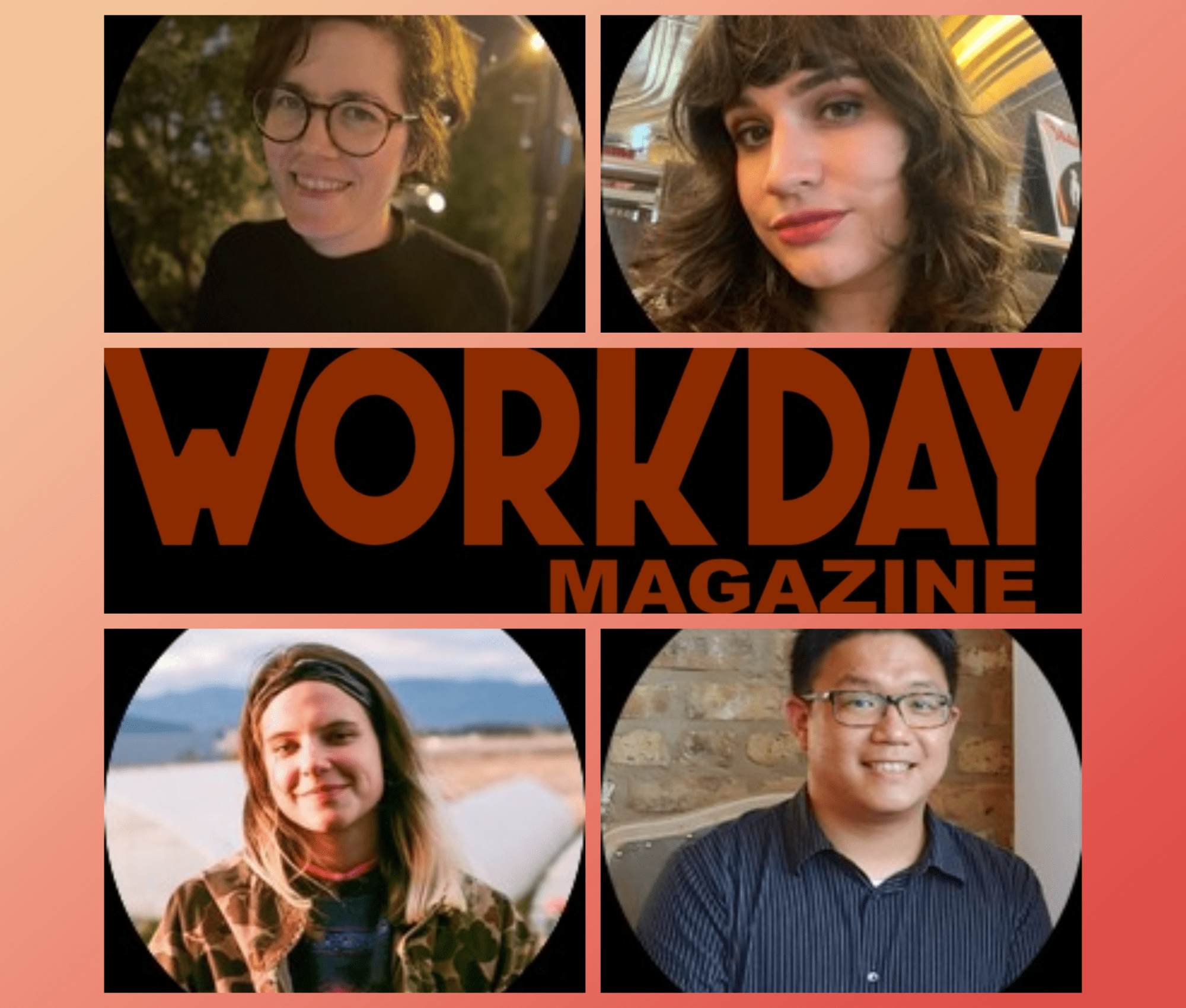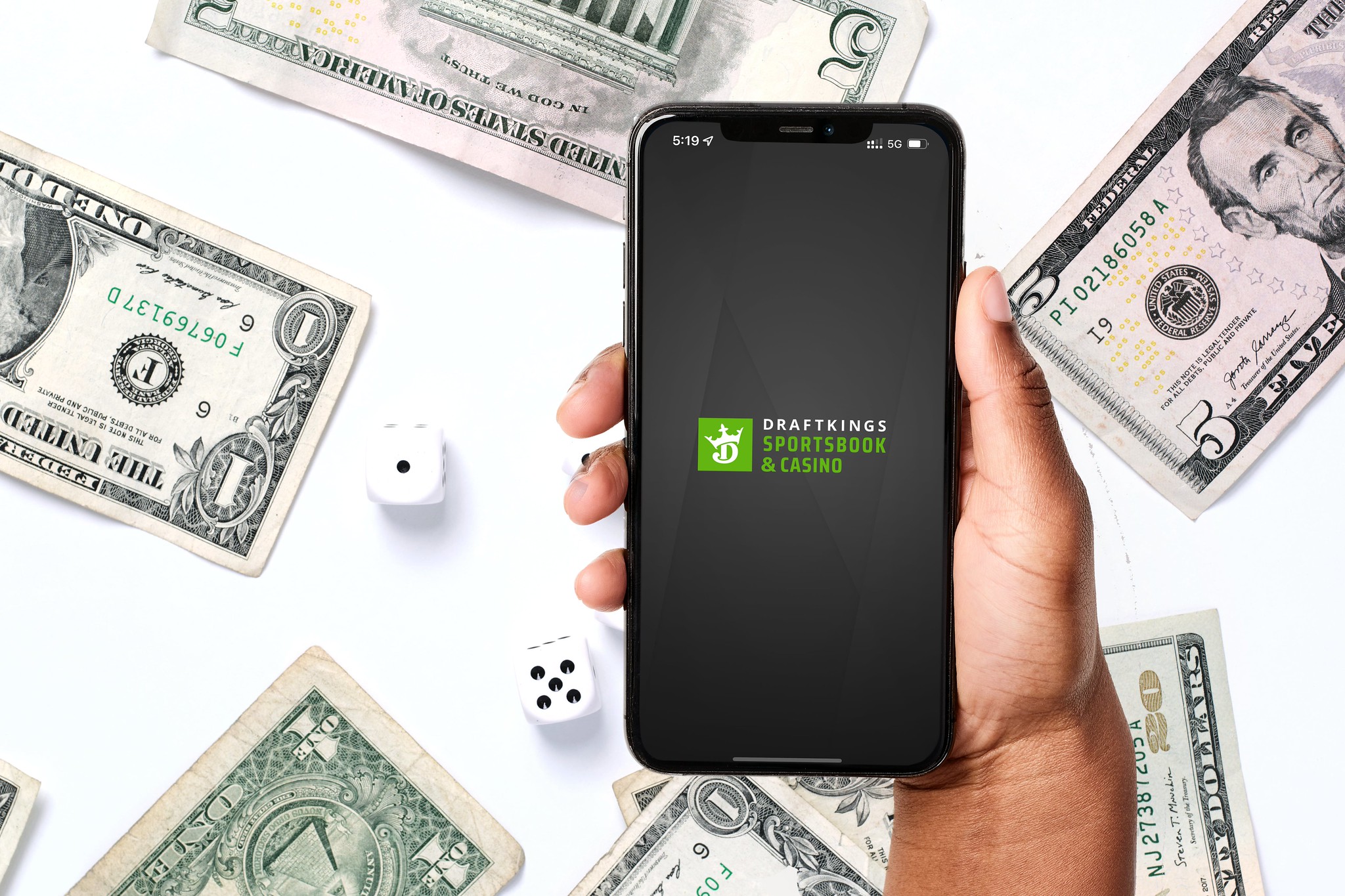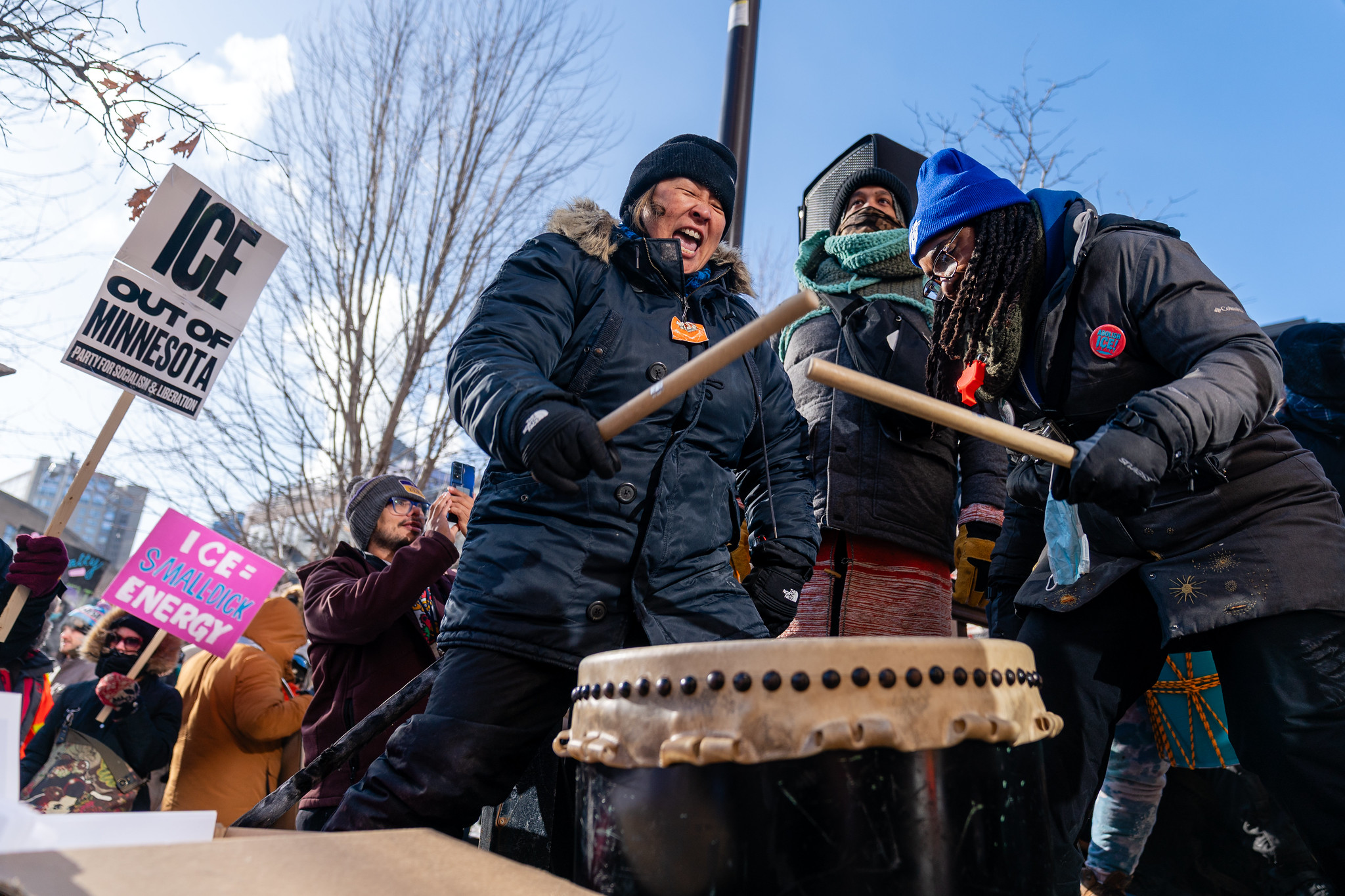If you read the business sections or, lord help you, the op-ed sections of most daily newspapers in the U.S., it becomes abundantly clear whose interests are being catered to. And folks, it ain't the workers who have watched CEO compensation skyrocket by 1,322% since the late '70s while seeing their own pay stagnate.
Since 2000, Workday Magazine has been dedicated to telling the stories of those workers. Consider Sarah Beth Ryther, a downtown Minneapolis Trader Joe's employee who helped spearhead her shop's recent union drive. Workday was all over the story of Minnesota's first-ever unionizing Trader Joe's, running a 1,500 piece that quoted multiple workers. The Star Tribune, meanwhile, dedicated a few hundred words to it and only platformed an anti-union Trader Joe's PR rep.
"So often, the labor movement can feel abstract and far away," Ryther tells Racket. "Workday Magazine plants the struggle in our backyard, and really allows folks to connect to each other and to the powerful history of organizing in the Twin Cities."
Ahead of Workday's relaunch party this evening at Arbeiter Brewing—a solidarity bash titled "How to Build Pro-Worker Media: A Discussion With Workday Magazine and In These Times"—we spoke with associate editor Amie Stager about the past, present, and future of covering labor in Minnesota and beyond.
Tell me about the history of Workday Magazine, which was recently rebranded from Workday Minnesota.
When Carlson School of Management was created, there were some labor leaders who were like, ‘Hey, you’re building something for business people and business interests–we need something for us too!’ Out of that came the Labor Education Service, which owns Workday and is housed inside Carlson. Workday Minnesota was created in the early 2000s as one of the first online labor news publications in the country. The goal at first was to simply cover unions, but recently we’ve shifted to be more about longer-form writing and reporting—investigative, in-depth stuff. We have this small, three-person team of radical female labor journos who are trying to expand our coverage to the greater Midwest and even international issues.
It's very funny to me, as a U of M grad, that you’re in the heart of Carlson, which is a breeding ground for young capitalists trying out their first suits and ties.
I’m also a U of M grad, and it’s interesting being in that environment. I always say we’re close enough to smell the Kool-Aid but not drink it.
So, as you know, last century almost every daily newspaper had a labor reporter or at least something of a labor beat. Today, there are maybe a handful of full-time labor reporters in the country. Is Workday's mission to sort of fill that void?
We definitely see ourselves as part of a greater renaissance that’s happening in labor reporting. The labor beat used to be everywhere, and it has gone up and down. We’re part of a new wave of that. The person who started Labor World was a young woman in her 20s. The person who started the Union Advocate, and the thing that preceded the Labor Review, were also young women. We’re continuing that legacy of young, radical women bringing that idea back to the forefront of what journalism is, and seeing media as something that can help the labor movement.
What are your favorite types of stories to cover?
I love talking with nurses and teachers. They’re leaders in themselves. I don’t really do a lot of reporting on politicians. Nurses are at the intersection of being community leaders and educating the public, and also they’re all really interested in science and being teachers. I did a story earlier this year talking to one teacher and one nurse who went on strike last year, and comparing what they learned through the lens of being in feminized professions. They caused all these waves, it’s historic: Why now, why 2022, why during the pandemic? Everyone in those professions has so much wisdom.
How do you approach your coverage now that, in terms of membership, the state of U.S. trade unionism is about as bleak as it has ever been, yet there are all these glimmers of hope with Amazon, Starbucks, etc.?
We’re able to see the silver linings of more BIPOC workers joining unions, and even though membership is down, workers are in the headlines more. What’s the conversation happening around essential workers? They are heroes, but what does that really mean? All of the energy and solidarity we’re seeing is really, really exciting—people from different unions supporting each other. One thing we want to cover more are the intersections between the environmental movement and the labor movement. There’s a lot of tension there, and a lot of times it’s made to be jobs vs. environment. But there’s so much interesting work and research coming out showing climate is actually a vehicle for worker justice. It feels like there’s a boom for all these social justice movements coming together, and there’s a lot of potential. We want to make sure those stories are being told.
I'll ask a sort of J-school question here. Your outlet, like mine, has a point of view and doesn't hide biases. But there are a lot of unions—the people you cover—listed as sponsors on the website. How do you approach that as a newsroom?
Those are donations that anyone can make. Over, I think, $500 you can be listed as a sponsor. But we don’t depend on those sponsorships. We get our funding from the state. We have a strong set of editorial policies. We’re pro-union and we’re pro-labor and we’re pro-worker; we want to help amplify the stories of unions and their members, but we also want to be critical of U.S. political machines and their rhetoric. We’re leaning into publishing things that might be a little hard for traditional labor movement people to grasp, but we want to have those conversations.
Tell me about the rebrand and tonight's big event.
We rebranded last year, going from Workday Minnesota to Workday Magazine. We’re still working on re-introducing ourselves, keeping the relationships we already have but also wanting to create new ones. We wanted to do an event together with In These Times about how to create pro-worker media. It’ll be a time to have a few of the people we’ve written about come and talk to us about the media. It’s about media transparency—this is how stories are done, this is how journalists work. We’re taking the time and space to celebrate… we exist!






